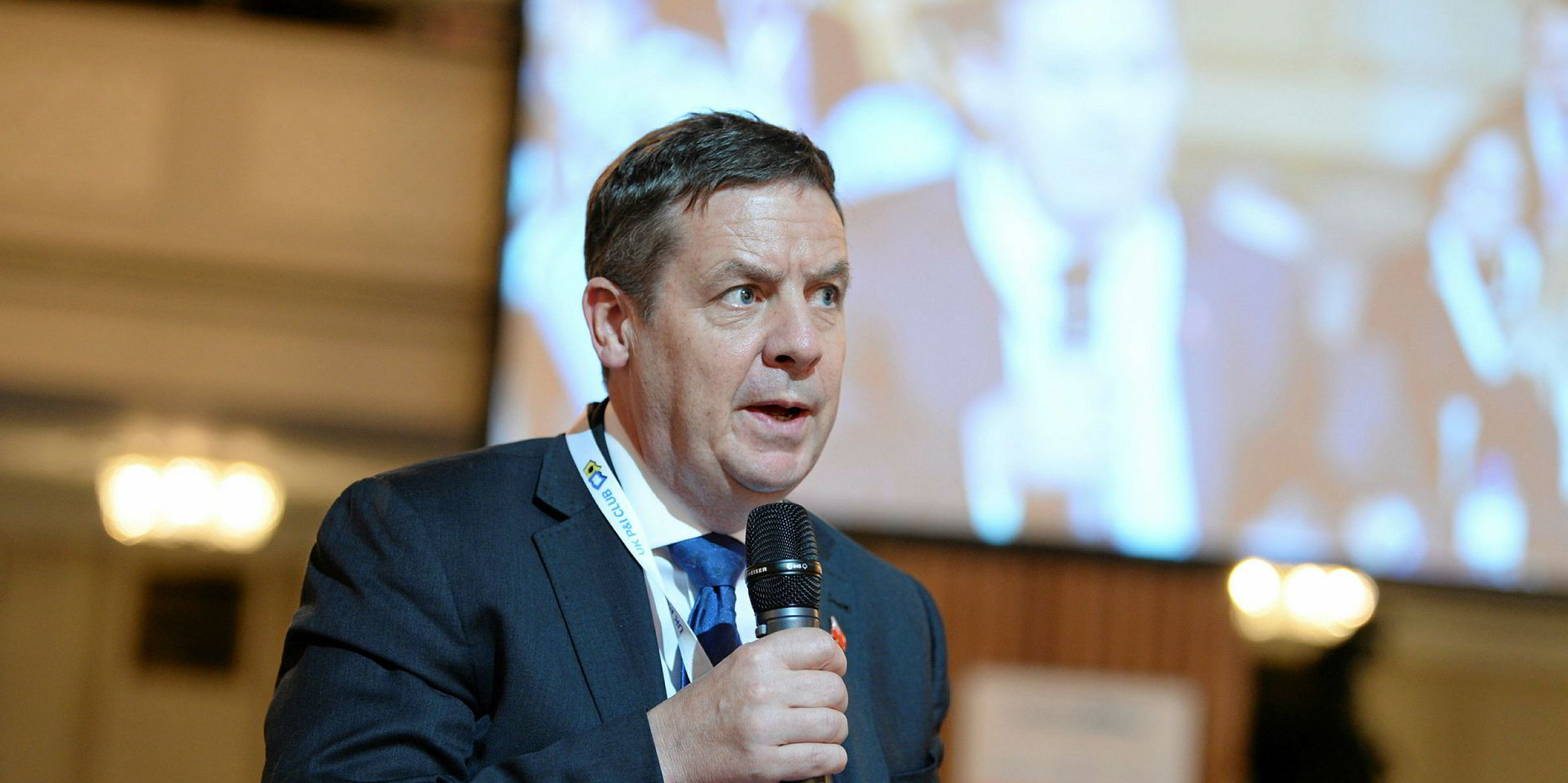Leading shipowners association the ICS says the IMO is still on schedule to meet its carbon emissions targets despite claims from environmentalists that progress has stalled.
Commenting after the conclusion of the Maritime Environment Protection Committee (MEPC) meeting, where carbon reduction strategies were discussed, International Chamber of Shipping (ICS) chief executive Guy Platten said: ““If this solid IMO momentum continues then the industry is on track to meet the 2030 target.”
The IMO has said it wants to see a 40% reduction in carbon emissions by 2030.
The IMO meeting agreed tougher efficiency standards for containership newbuildings and the terms of reference for a study to assess shipping’s carbon emissions that will set a benchmark for its reduction targets.
“Progress by the industry so far will be clearer after the conduct of the next IMO Greenhouse Gas Study, whose terms of reference were finalised this week,” Platten said.
However he added that he believed that the IMO membership is against France and Greece’s proposal for mandatory speed limits.
He said: "Although no final decisions have been taken it was clear that the majority of IMO member states, including major economies such as China, India, the United States and many South American nations, had little appetite at present for initiatives such as mandatory speed limits, expressing concern that these would reduce the efficiency of maritime transport, in effect increasing the distance between economies and their markets, while acting as a disincentive to the take-up of new CO2 reduction technologies.”
Japanese plan had more support
He said alternative proposals such as one from Japan which suggested speed optimisation to achieve emissions targets and the ICS’s own suggestions had more support.
However environmentalists blasted the IMO meeting claiming no progress had been made.
John Maggs, of Seas At Risk and president of the Clean Shipping Coalition, said: “The sound of deckchairs being rearranged was deafening at IMO this week. Faced with demands for urgent action to tackle the climate emergency, the IMO became a parody of itself with those that never wanted shipping climate action in the first place ensuring little or no progress was made.”
Bill Hemmings, aviation and shipping director at Transport & Environment, said: “Shipping is the only sector not subject to binding climate regulation and its remaining climate budget is fast being used up. Speed regulation is the most effective measure on the table; fortunately it will go forward for discussion at the next session. We have no time to lose, IMO procrastination must stop.”




